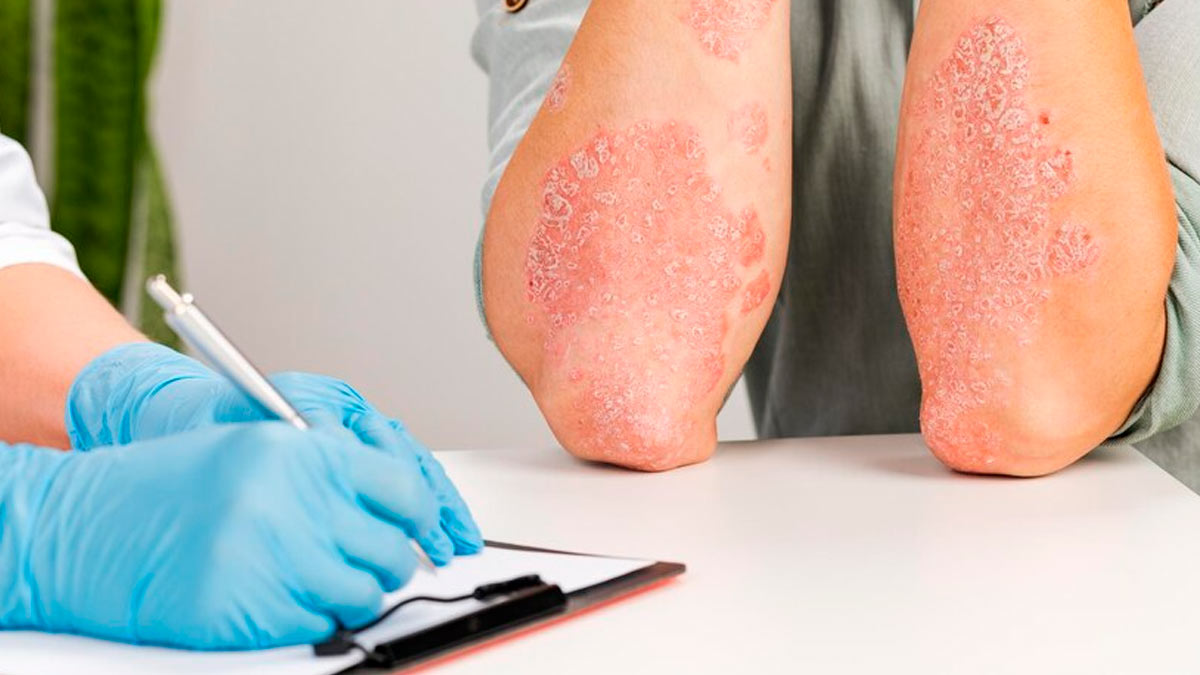
We've all experienced itchy, irritated skin at some point in our lives. But what if that persistent rash on your arms or legs isn't just a temporary annoyance? The culprit might be eczema, a prevalent skin condition that impacts a significant number of individuals globally. It is known for its relentless itchiness and stubborn flare-ups, but how do you know if your skin rash is indeed eczema?
Table of Content:-
Dr Hema Soujanya, Consultant, Dermatologist, Manipal Hospital, Vijayawada, Andhra Pradesh, explains eczema and how it is different from a common rash.

Dr Soujanya said, “Skin eruptions are often underestimated by individuals, unaware that certain eruptions could be eczema, requiring professional diagnosis and treatment. Unfortunately, many eczema cases worsen due to self-diagnosis and self-medication practices.” She added that approximately 20-30% of new patients visiting a skin outpatient department in India are estimated to have eczema.
According to the National Institute of Allergy and Infectious Diseases (NIAID), eczema patients may be more prone to bacterial, viral, and fungal skin infections than other people.
Symptoms Of Eczema

- Dr Soujanya highlighted, “Eczema symptoms can be difficult to interpret because they differ from person to person and may resemble those of other skin diseases.”
- Itching
- Oozing
- Crusting
- Redness
- Red patches
- Swelling
- Dry and sensitive skin
Also Read: Redness On Scalp? Expert Lists Signs Of Scalp Eczema And Its Types
What Is The Cause Of Eczema?
Dr Soujanya noted, “Eczema can occur from internal factors, such as nummular eczema or stasis dermatitis caused by varicose veins. In addition, external factors, such as chemicals, hair dye, sanitisers, detergents, artificial jewellery, certain plants (irritant contact dermatitis), or combinations of both can be responsible, as seen in seborrheic dermatitis and atopic dermatitis.”
Each of these variations can exhibit unique symptoms and manifestations. Depending on the duration, eczema can manifest as acute eczema, characterised by oozing, redness, itching, burning, and blister formation, or chronic eczema, which appears as thickened and darkened skin (lichenification and hyperkeratosis).
How Is Eczema Different From Other Skin Conditions

Dr Soujanya added, “Skin diseases, such as psoriasis, ringworm (tinea), lichen planus, etc mimic eczema but are not the same thing. Eczema shares symptoms with other inflammatory skin problems like psoriasis, fungal infections, and others, including itching, redness, and irritation. When there are no obvious visual indicators, it might be difficult to distinguish eczema from other dermatological conditions due to these symptoms.”
Different factors, including allergies, irritants, stress, changes in the weather, or hormonal changes, can cause eczema episodes. Since they might differ from person to person, it can be difficult to pinpoint the precise triggers and patterns. Also, it might be challenging to determine the reason when symptoms start at one location before spreading to others.
Also Read: Dry Scalp On Your Body? Expert Explains Impact Of Psoriasis And Importance Of Early Detection
How To Deal With Eczema
Dr Soujanya informed, “You should seek medical attention immediately if you experience any eczema symptoms. A healthcare provider diagnoses eczema through a physical exam, which often occurs in childhood but is possible at any age. They may conduct tests to rule out other conditions, including allergy tests, blood tests, or a skin biopsy.”
How To Treat Eczema

Eczema presently has no effective treatment options. Dr Soujanya added, “Healing the affected skin and preventing relapses of symptoms are the goals of treatment for the disorder. Based on a patient's age, symptoms, and present health, doctors will recommend a course of treatment. Eczema may fade gradually for some people. But it is a chronic condition for some people.”
Most individuals commonly use ineffective treatment methods to get relief from eczema. Many people wrongly believe that any itchy skin problem is either eczema or fungal infection. As a result, individuals regularly take high-potency steroids and self-medicate with over-the-counter (OTC) drugs without realising the hazards and adverse effects of their unauthorised use. Eczema, if left untreated, can also cause insomnia and depression.
Disclaimer
The information in this article is shared by the expert and is solely for informational purposes. Hence, we advise you to consult with your dermatologist for a treatment catered to your needs.
Also watch this video
How we keep this article up to date:
We work with experts and keep a close eye on the latest in health and wellness. Whenever there is a new research or helpful information, we update our articles with accurate and useful advice.
Current Version